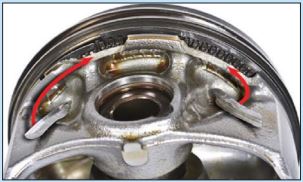Why Buy Signature Series? There are many big names out there. A lot of new start-ups claiming to be the Holy Grail in engine oil. But in short, AMSOIL remains on top for one reason – the founder AJ Amatuzio wanted to provide a product where the customer can be certain he (or she) is […]
You are browsing archives for
Tag: signature series
What Motor Oil is Best for Winter? (And ...
The Best Winter Motor and Transmission Oil Choice John Baker|Feb 15, 2019 10:00 AM Synthetic oil is best for winter. We’re done here. If only it were that simple. But most people want empirical data to support such claims. Well, take a look at the video. We cooled a conventional 5W-30 motor oil and AMSOIL Signature […]
Signature Series: The Measure Of Perform...
SIGNATURE SERIES: Brand comparison Testing – Viscosity In the NOACK Volatility Test, Signature Series scored far below the API limit for evaporation and proved it remains where it’s needed most – protecting your engine. Nearly 35 years ago AMSOIL became the first oil manufacturer in the United States to use the NOACK Volatility Test as […]
Signature Series Motor Oil Protects Engi...
SIGNATURE SERIES Protects Engines from Future Industry Problem LSPI can destroy pistons and connecting rods, bringing an engine to a standstill in seconds. Original equipment manufacturers (OEMs) like General Motors (GM)* have addressed the issue by designing tests to gauge a motor oil’s ability to prevent these destructive events. Signature Series achieved 100 percent protection […]



